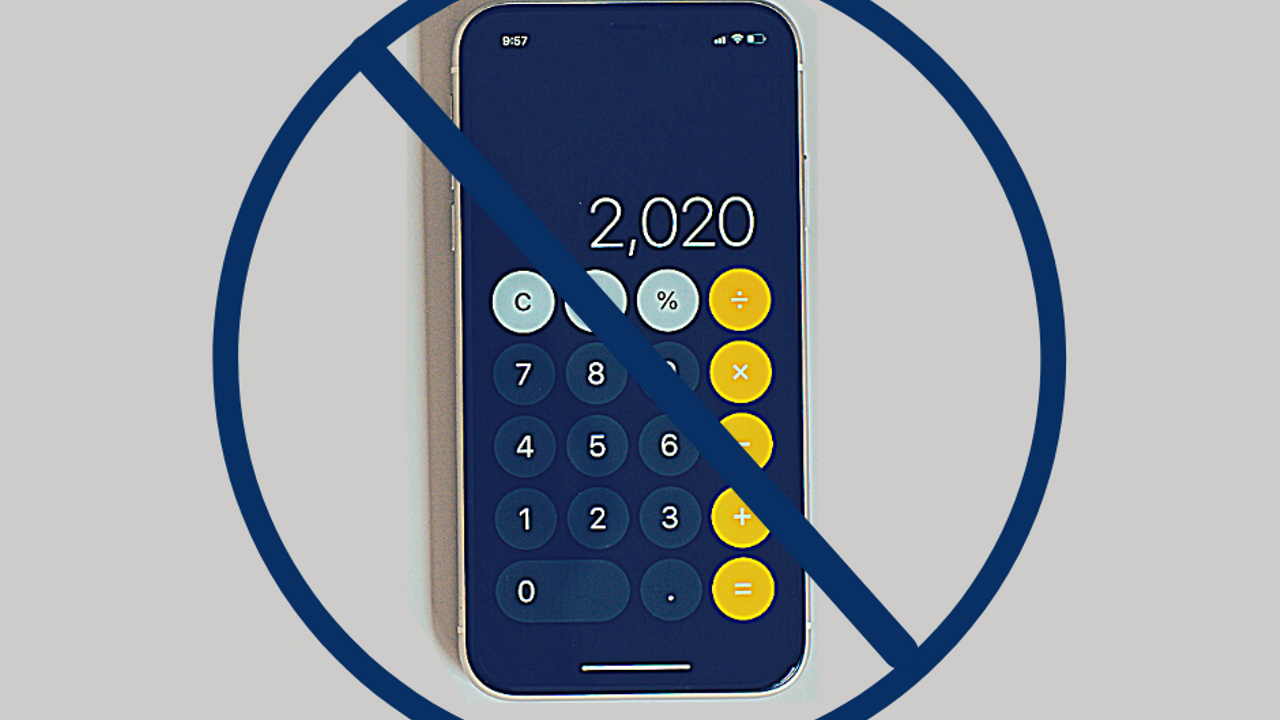Two Big Calculator No-Nos to Avoid

Higher level math introduces the infinitely useful calculator and all its wonderments. But for all its usefulness, there are still a few pitfalls that students can and should avoid. Here are two big ones that are easy to do but can have a notable positive effect on math performance.
1) Stop Using a Cell Phone Calculator for Math Immediately
I have two reasons I never let my math students use cell phone calculators (even though cell phones are handy and usually attached to the student).
- The first is that regular calculators are designed for mathematics while phones are not. Because of this, students perform much better when using a regular calculator. They are easier to use and more powerful than cell phone calculators (even if the phone calculator is some sort of fancy app). Phones simply can’t compete with a regular calculator.
- The second reason is that cell phone calculators are not allowed in a number of academic settings including standardized tests, entrance exams, and many classrooms. So, if a student is not used to using a regular calculator, he or she will be at a disadvantage. Math is already hard enough. There is no reason to add extra stress into a situation by having to use an unfamiliar calculator. Math is so much easier when using a calculator designed for math and that you are completely comfortable with.
So, I know cell phones are very handy. They are always right at our fingertips. And I get it. Sometimes to use a regular calculator would require walking all the way across the room or up the stairs to dig through a drawer or a desk (I have experienced this very dilemma myself). But it is completely worth the effort to go get your regular calculator and to NEVER use your cell phone calculator when doing math assignments. It is a super easy strategy to implement that pays off big time.
2) Avoid the Temptation to Switch Calculators
Always use the same calculator for math. Imagine having to use a different cell phone each week. One week you have an iPhone, then the next week you use a Samsung. You could still function. You could make calls and send texts, but it would be frustrating and take a lot of extra brain power, right? The same is true of calculators. When students start studying high school level math, they begin using a lot more features on the calculator. If they constantly just grab any calculator laying around (or worse, use their cell phone calculator), then they are adding an extra layer of frustration and drain that will cause them to be less successful in math.
A very simple habit that will make math easier and reduce anxiety is to always use the same calculator. Students will learn where to find the various features they need and won’t have to spend extra brain power and time searching for them. Just like with cell phones, calculator setup varies widely between different companies and even different models within the same company. So, find a calculator that your student likes, and stick with it for years. It really does help.
If you would like to learn about the main types of calculators used in math classes and guidelines for when to use them, click here to get my free calculator guide.
Thanks, and happy teaching!
- David Denison

